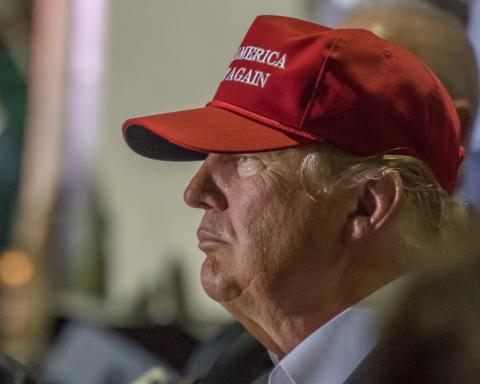It has been said of presidential candidates that the ideal nominee is one with no history. Put another way, the candidate with the lowest number of blemishes in the public eye.
That approach assumes a candidate is a career politician, which the latest presidential candidate to emerge victorious from a roiling election season is not.
To make the claim that Donald Trump appeared with no history from out of left field would be foolish, but his record in the political arena was fairly blank at the beginning of his candidacy. Today, that’s not exactly the case.
In the short time since Trump transitioned from underdog candidate to leader of the free world, he’s been the target of more than a few investigations. While the Russian election tampering investigation is the most high-profile of these, Trump has actually been wrapped up in a number of other questionable situations.
In many cases, questions are raised on a topic only to have Trump’s administration respond by shifting the attention away from the issue at hand.
Just take a look at a few examples of investigations that lost steam shortly after being opened or remain in a state of constant limbo with Trump placating the public when they come looking for answers.
1. Trump’s Tax Returns
The last time a Republican Party nominee for president chose not to release some form of tax return was in 1976, when Gerald Ford chose to keep his tax information private.
The historical precedent for presidential candidates to release this information as a display of transparency derives from Richard Nixon’s scandalous tax dodging in 1969, the year he was elected president. Investigative reporter Jack White eventually uncovered what Nixon had done, but by that time Nixon was already on his way out because of the Watergate scandal.
Since the Nixon episode, it has become commonplace for presidential candidates to make their tax returns available for review. This helps assure the public that no tax fraud was committed.
Trump, however, maintains that he cannot do this because he is under audit. He has also suggested the sheer volume of the documents would make it too cumbersome for the public to make any sense of them. His tax returns are as-of-yet unreleased.
2. Sexual Assault Accusations
Following the locker room talk controversy from the election year, a number of women surfaced with allegations that Trump had touched them inappropriately or even kissed them.
In addition to the reports of two New York Times journalists, stories from the Miss USA Pageant — an event Trump backed — include multiple allegations that Trump acted inappropriately toward contestants in their dressing room.
Trump has made little noise in direct response to the claims, although he has alluded to having some knowledge of other political figures, specifically Bill Clinton, behaving in similarly inappropriate ways.
3. Cancer Charity Funds and the Donald J. Trump Foundation
Many politicians operate charitable organizations. Doing so is a great way to get exposure and demonstrate an altruistic stance toward societal issues, but these organizations are often the subject of scrutiny because of the large sums of money that move through them.
Donald Trump operates a foundation in his own name, and his son Eric has also attached his name to a charitable organization. Donald’s organization, it seems, was rather malnourished. Between 2009 and 2014, Trump in fact made no contributions to the Donald J. Trump Foundation.
Meanwhile, Eric’s foundation, which was founded in 2007, became known for organizing and hosting lavish golf tournaments.
Curiously, the cost of the tournament more than doubled from $46,000 to $142,000 in 2011. When the media investigated where the money was going, it appeared that contributions were being funneled into the Donald J. Trump foundation instead of helping children with cancer.
Without his success in the real estate market, Donald Trump probably wouldn’t be sitting in the oval office these days. It’s curious, then, that since his political career has developed, Trump’s real-estate transactions are much less transparent.
A disturbing trend can be identified in the companies buying Trump-held properties since he became president. That is, nearly three-quarters of them have been shell companies, subsidiaries, and other representatives of businesses who don’t want to purchase the property directly for whatever reason.
Before taking power, only about 4 percent of Trump’s sales went to these types of buyers.
Some speculate that this shift in the way Trump is trading property has to do with politically-interested parties buying a stake in how the nation is run. The closely held specifics of such real-estate transactions could be acting as a smokescreen for those who want an easy way to send money to the Trump agenda, or their own agenda.
Despite the worrisome number of cases like these that have surrounded Trump’s rise to power, the new president has managed to keep secure most of the information journalists and critics have sought to expose.
Certainly, even as a president, there is a right to privacy — but that right only goes so far. It is possible that the Russia investigation will lead to the disclosure of Trump’s tax returns regardless of his efforts to hide them, and in the long run, it is likely that the answers to many of the other issues mentioned here will be exposed.
Even if that occurs long after Trump leaves office, the Donald should put some thought into the kind of president he wants to be seen as and the legacy he will leave.
Photo Credit: Windover Way Photography / shutterstock.com
